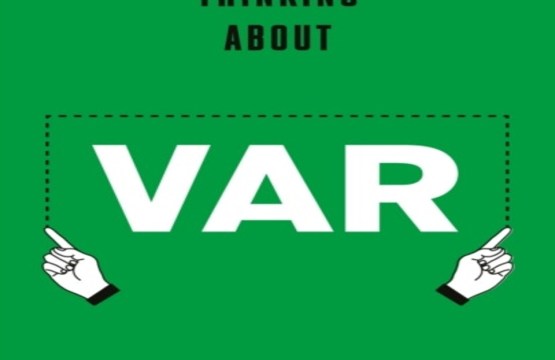I can’t stop thinking about VAR by Daisy Christodoulou, an academic analysis of a never-ending terrace debate.
This is a thought piece that dodges a conclusion. It is less an extended article in When Saturday Comes and more of an academic dissertation. Why else does a short book on VAR end on a debate between academic and populist post-modernism?
Whilst the debates on VAR are deep and well thought out, there is a point where you cannot see the forest for the trees.
She debates for or against VAR close to the point that it is here and there is no going back, even with all its problems.
The theoretical points can end up a long way from the fans waiting for the humans to decide in a studio in West London, and that is the point where it loses the average fan.
The other sports -cricket and tennis – have absorbed technology well, with a few hiccups. But her point that football is different is well argued. VAR will never work as a solution to human refereeing.
The book ends on a vague whimper without a real way forward. She proposes a pause in VAR so that there can be labs to test on tweaks, but I doubt it is any more than window dressing.
Lots of arguments for and against, but the analysis leaves no way back. Maybe because there isn’t, but the book avoids that. Fans do not like wayward refereeing, but they also don’t like the wait for a VAR decision only to find out it’s just as controversial but for different reasons, as the author explores in her book – the more you look for accuracy, the harder it gets.
Everyone has a view on VAR. Everyone has problems with it. But no one has a workable solution. I spent last season watching Leeds in the Championship. Occasionally, the crowd would let the referee know when he had clearly lost control of the match. But there is no VAR in the Championship. At the end of the match, we were happier knowing where we stood – sometimes a good referee, sometimes not. But it was always an accepted part of the story. We happily lived without VAR.
I walked away from this book even more against VAR. However much I want it to improve on human error, it is clearly not going to happen. The book explores how VAR could be made more accurate, but accuracy actually takes refereeing away from the spirit of the game. I remember when Pat Bamford pointed where he wanted the ball to go in the penalty, and his arm was judged as offside. It is difficult to know how VAR can make these decisions about where the line is drawn.
This is undoubtedly a never-ending debate on the terraces. VAR’s worst excesses are long delays and human error. The best we can hope for is to minimise the controversies.



